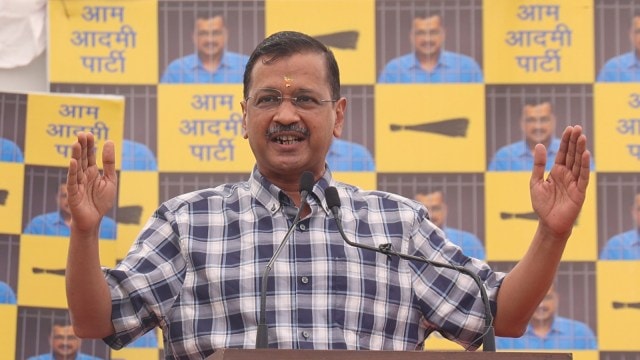Introduction
The Delhi High Court is currently hearing a case challenging the bail granted to Delhi Chief Minister Arvind Kejriwal by a lower court in a money laundering case connected to an alleged excise policy scam. The Enforcement Directorate (ED) has referred to the lower court's decision as a "totally perverse order" and is seeking its cancellation.
Background
Three months prior, on March 21, 2024, Kejriwal was arrested by the ED for his alleged involvement in a money laundering case related to the Delhi excise policy, which was also under investigation by the Central Bureau of Investigation (CBI). He had been in Tihar Jail but was granted interim bail last month to campaign for the Lok Sabha elections, after which he surrendered on June 2.
Case Details
Allegations Against Kejriwal
The ED claims that Kejriwal was directly involved in formulating the now-scrapped excise policy, allegedly designed to favor a group known as the 'South Group,' which reportedly paid Rs 100 crore to AAP leaders in exchange for benefits such as access to wholesale businesses and multiple retail zones.
Kejriwal's Defense
Senior Advocate Abhishek Manu Singhvi, representing Kejriwal, has argued that not a single rupee can be traced back to the Chief Minister, emphasizing that incrimination by co-accused needs corroborative evidence. He criticized the ED's remarks and the prolonged nature of the bail hearing.
Court Proceedings
ED's Arguments
Additional Solicitor General S.V. Raju, appearing for the ED, argued that the trial court had overlooked significant evidence, including statements and documentary evidence admissible under Section 50 of the PMLA. He emphasized that credibility of witnesses and their statements cannot be scrutinized at the bail stage.
Raju also pointed out the use of alleged proceeds from the scam in the Goa elections and argued that the trial court judge admitted to not reading all the papers, which he claimed should be grounds for setting aside the bail order.
Defense's Counterarguments
Singhvi countered that the High Court and Supreme Court were dealing with the legality of Kejriwal's arrest and not his bail, suggesting that the ED was misinterpreting the legal process. He criticized the ED's approach, suggesting that the lengthy hearings and the pressure to detail every argument were tactics to malign the judge.
High Court's Observations
The High Court noted that it would focus on the legality of the arrest, not the bail. It addressed the urgency with which the matter was listed and indicated that there would be no time limit on arguments, ensuring equal rights for both parties to present their cases.
Implications and Reactions
Political and Social Reactions
Sunita Kejriwal, the CM's wife, compared his treatment to that of a terrorist. The Aam Aadmi Party (AAP) criticized the ED's actions and expressed confidence in the judicial process. In contrast, the BJP plans to leverage Kejriwal's bail status and the ongoing water crisis in Delhi for political advantage.
Impact on AAP
The interim bail is crucial for AAP as it prepares for upcoming assembly elections. The party needs Kejriwal's leadership to address pressing issues, including a severe water crisis in Delhi and the implementation of significant budget promises like the Rs 1,000 aid scheme for women.
Criticisms of PMLA
The Prevention of Money Laundering Act (PMLA) has been criticized for its stringent bail conditions, which critics argue can lead to long incarcerations before trial, effectively punishing individuals before a conviction. The cases of Kejriwal's deputies, Satyender Jain and Manish Sisodia, and other politicians like Chhagan Bhujbal highlight the challenges faced in securing bail under PMLA.
Conclusion
The Delhi High Court's decision on Kejriwal's bail will have significant political implications, both for his immediate administrative responsibilities and the broader political landscape in Delhi and beyond. As the case proceeds, the focus remains on the legal arguments surrounding the bail conditions and the interpretation of the evidence presented by the ED.



Post a Comment
0Comments